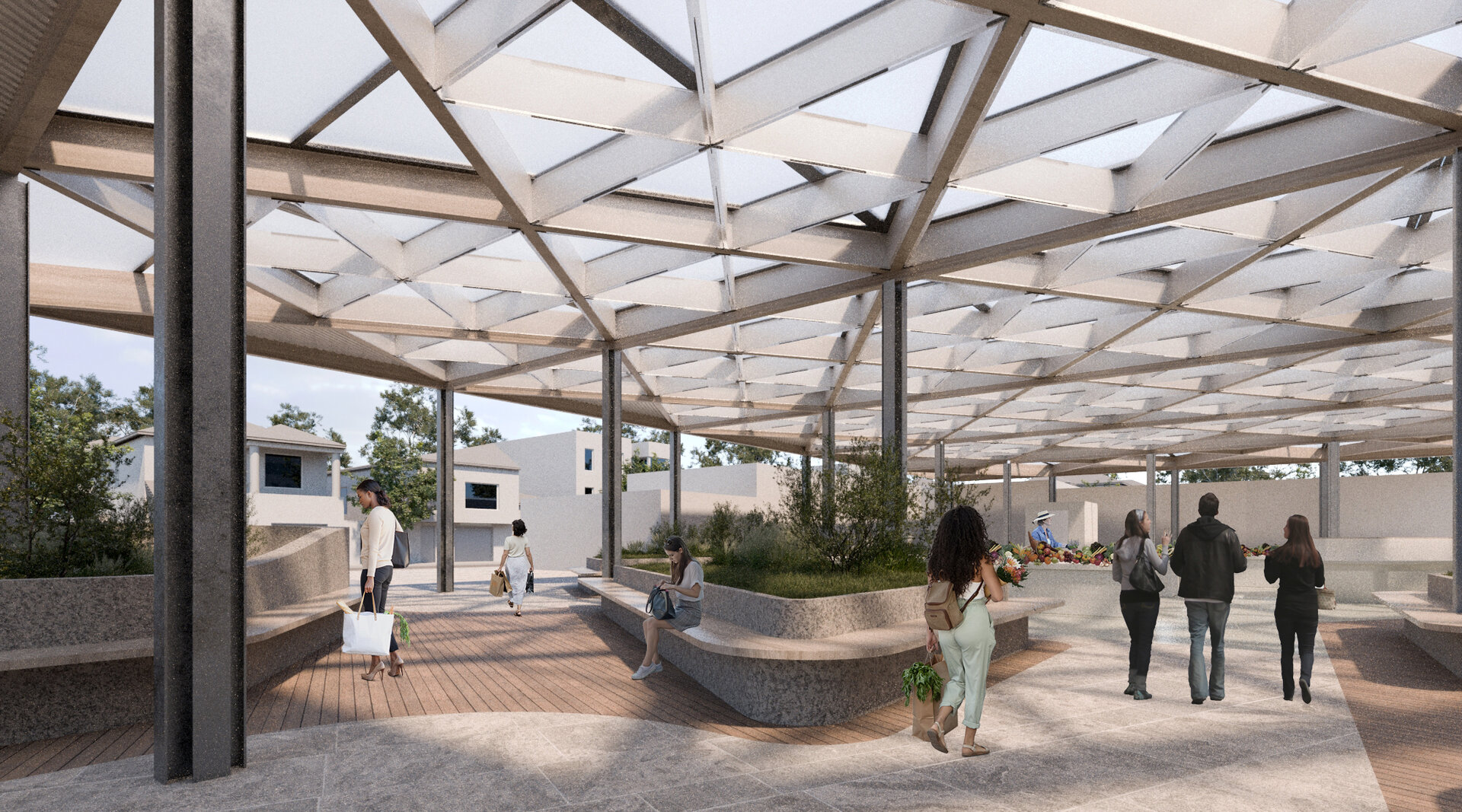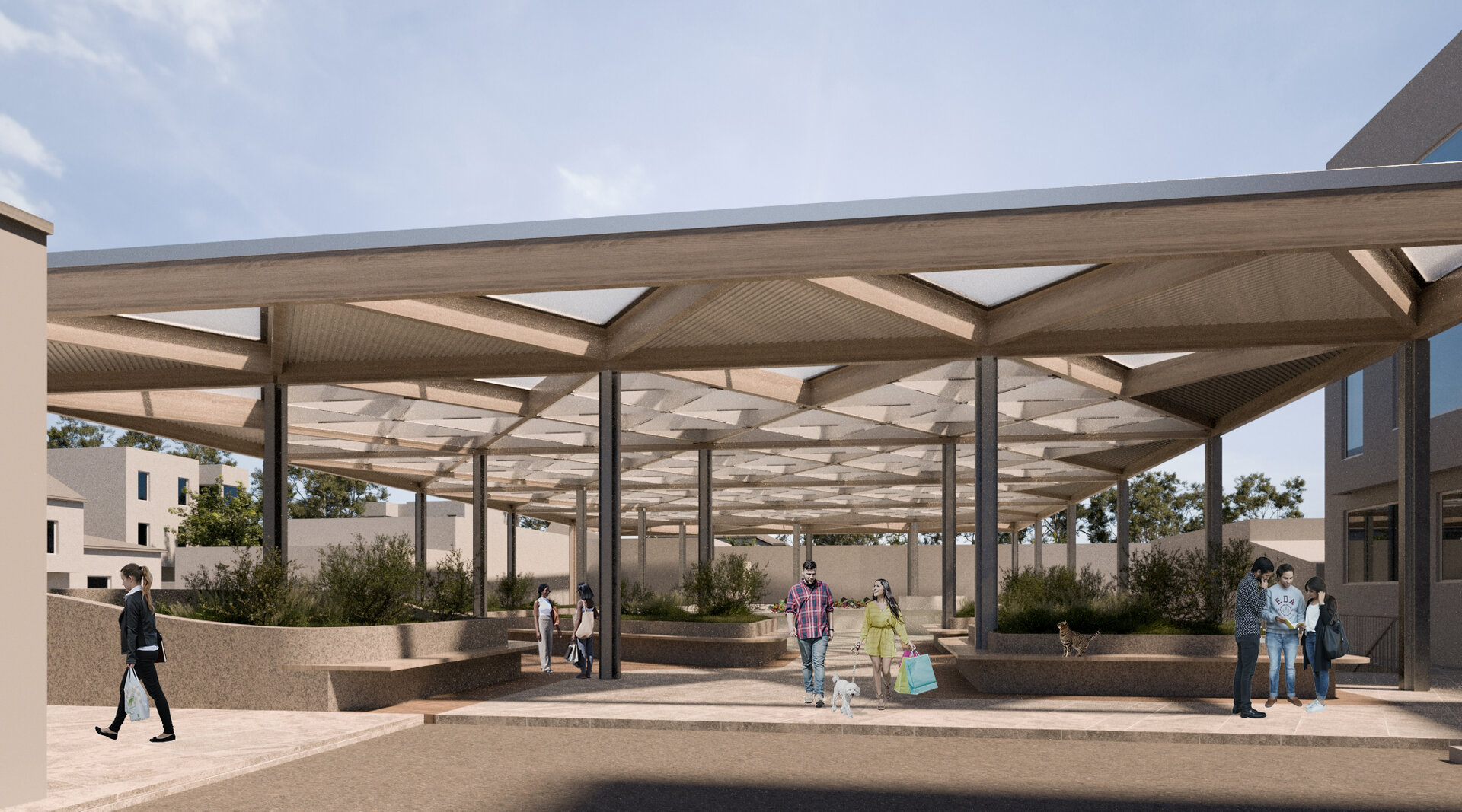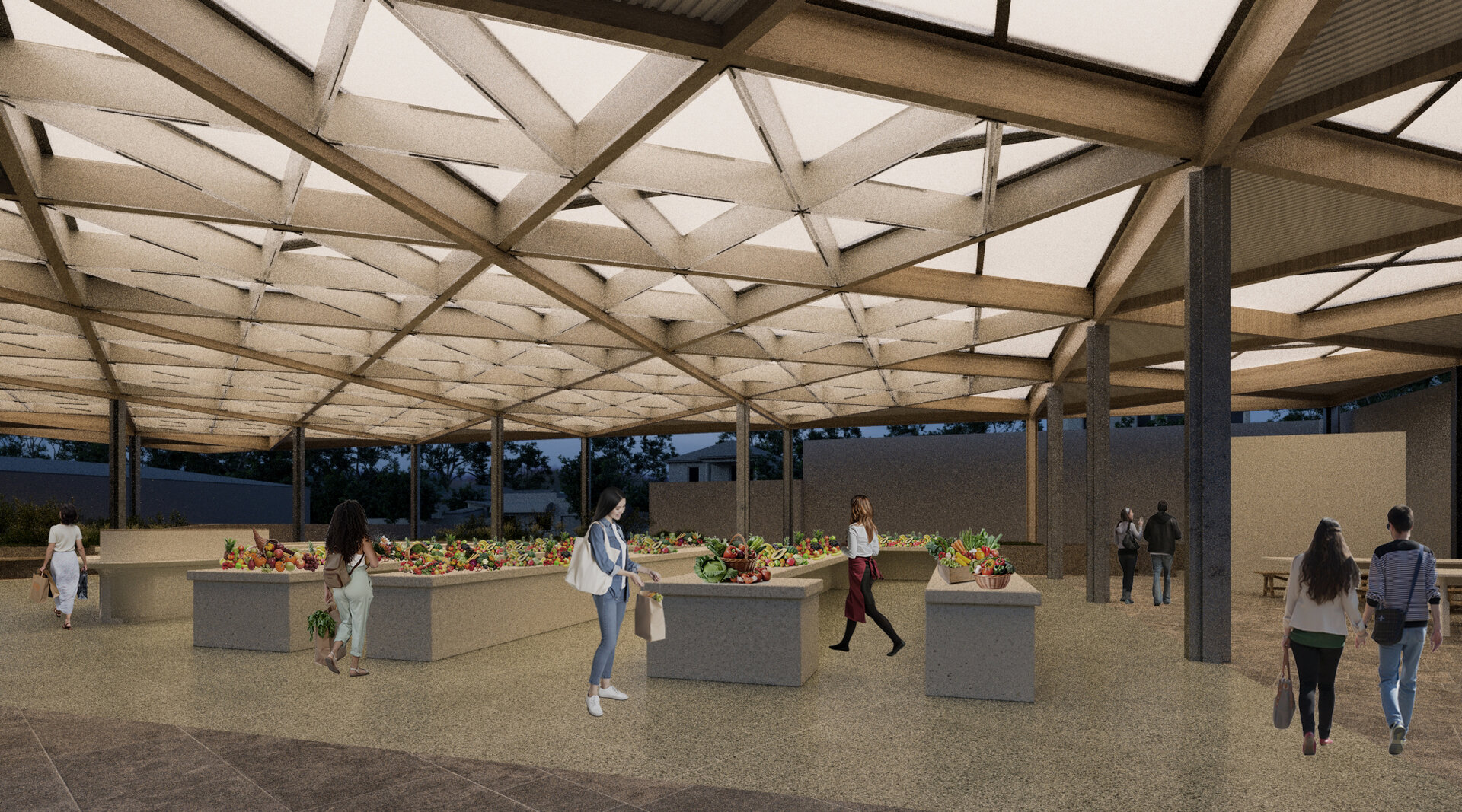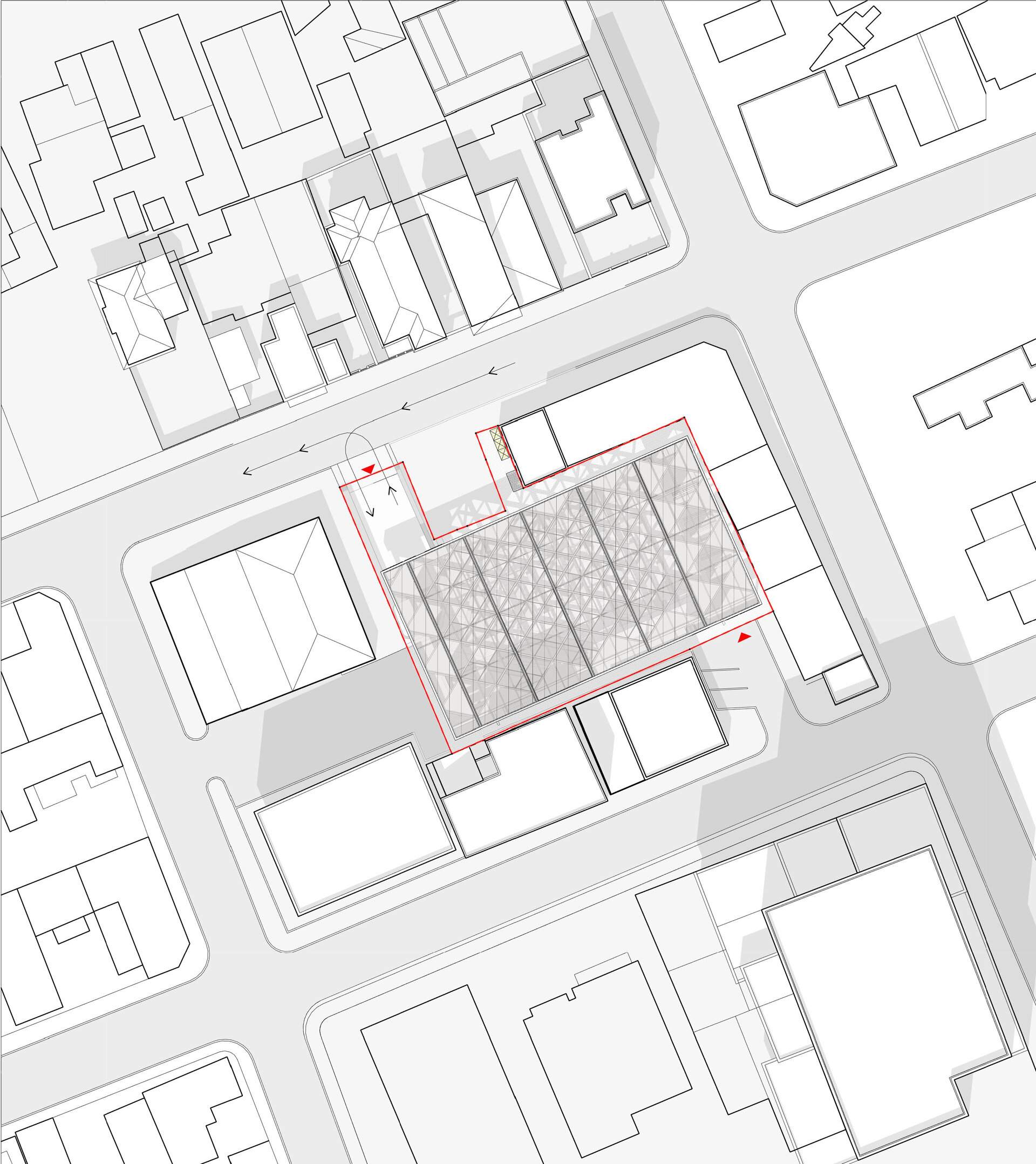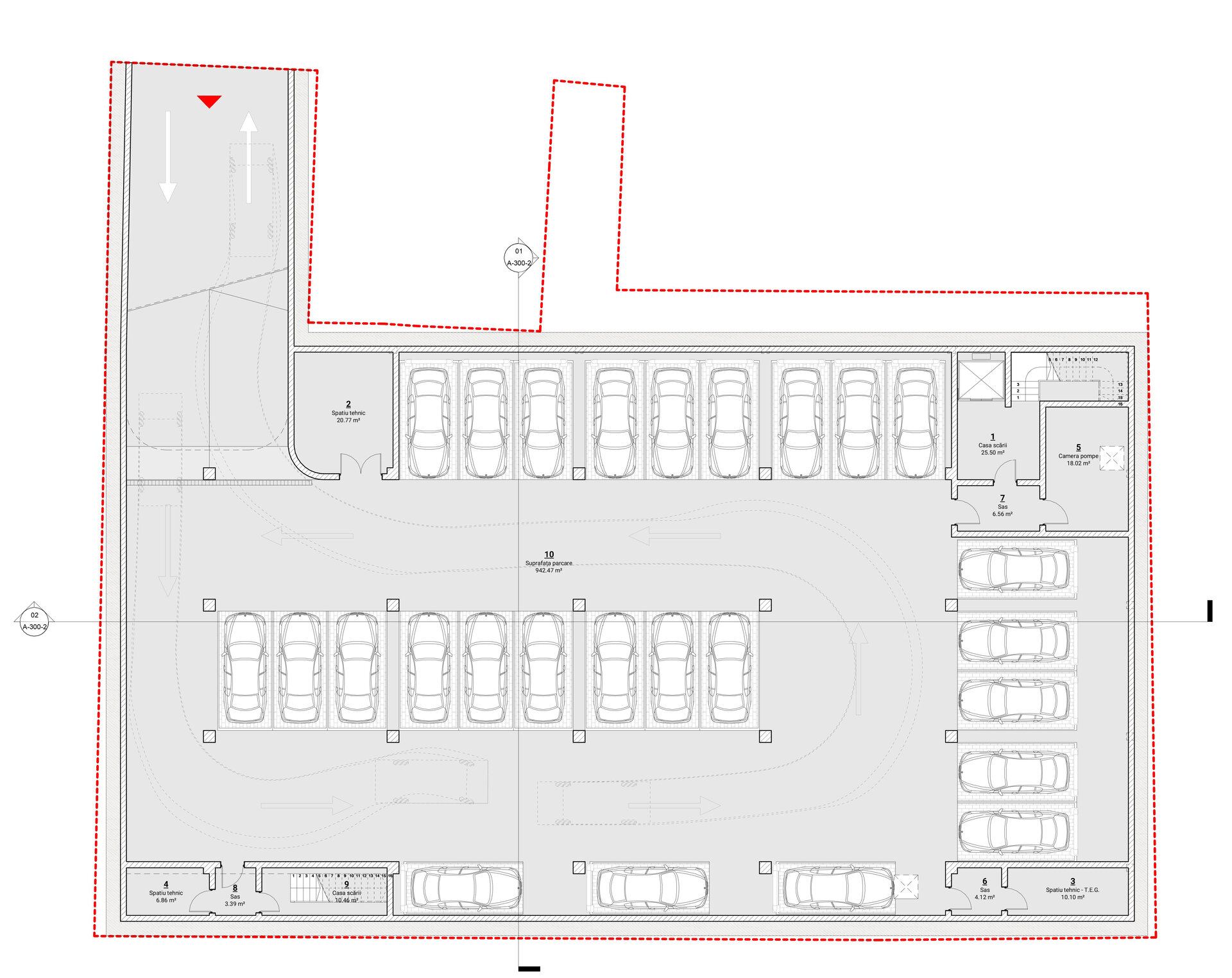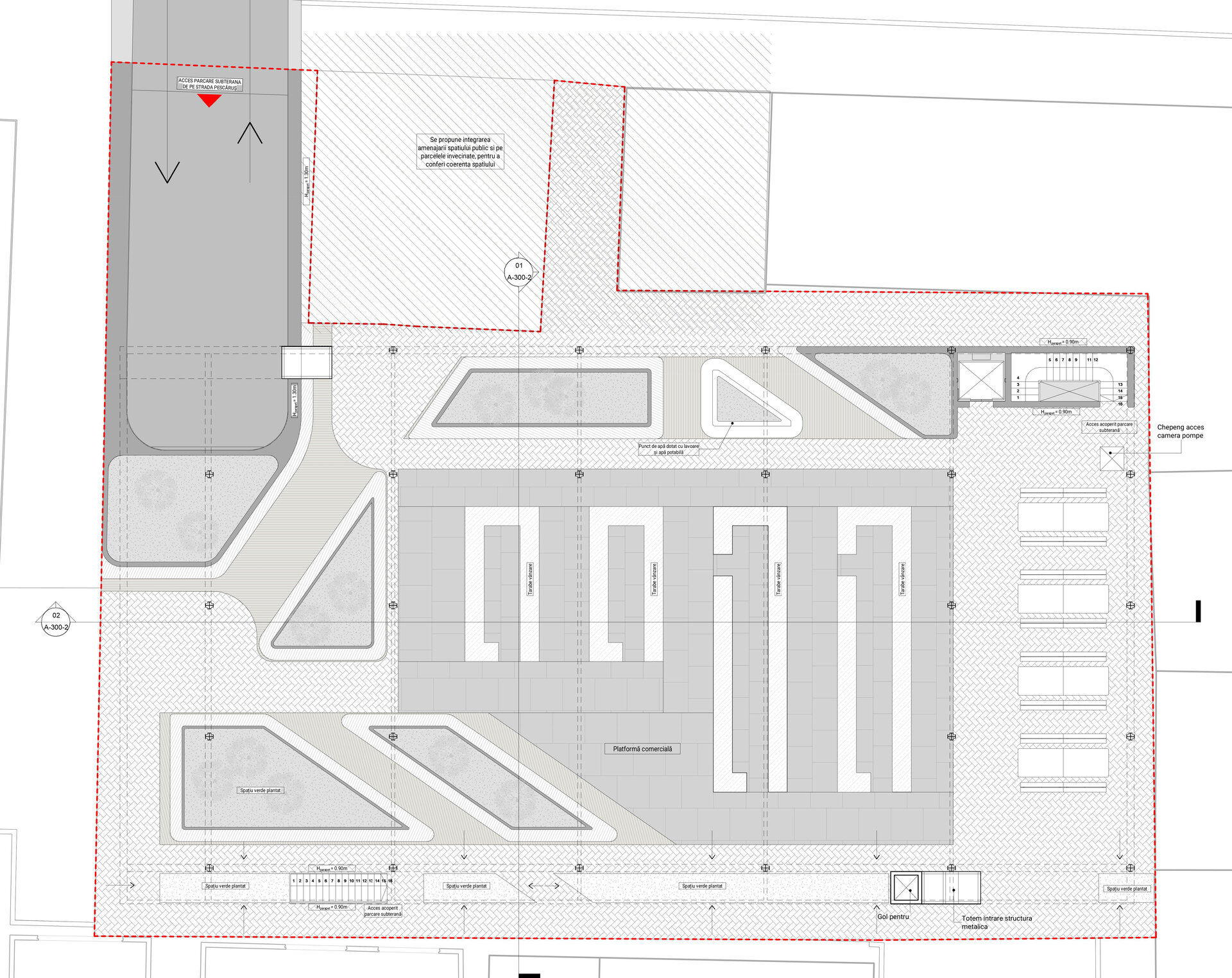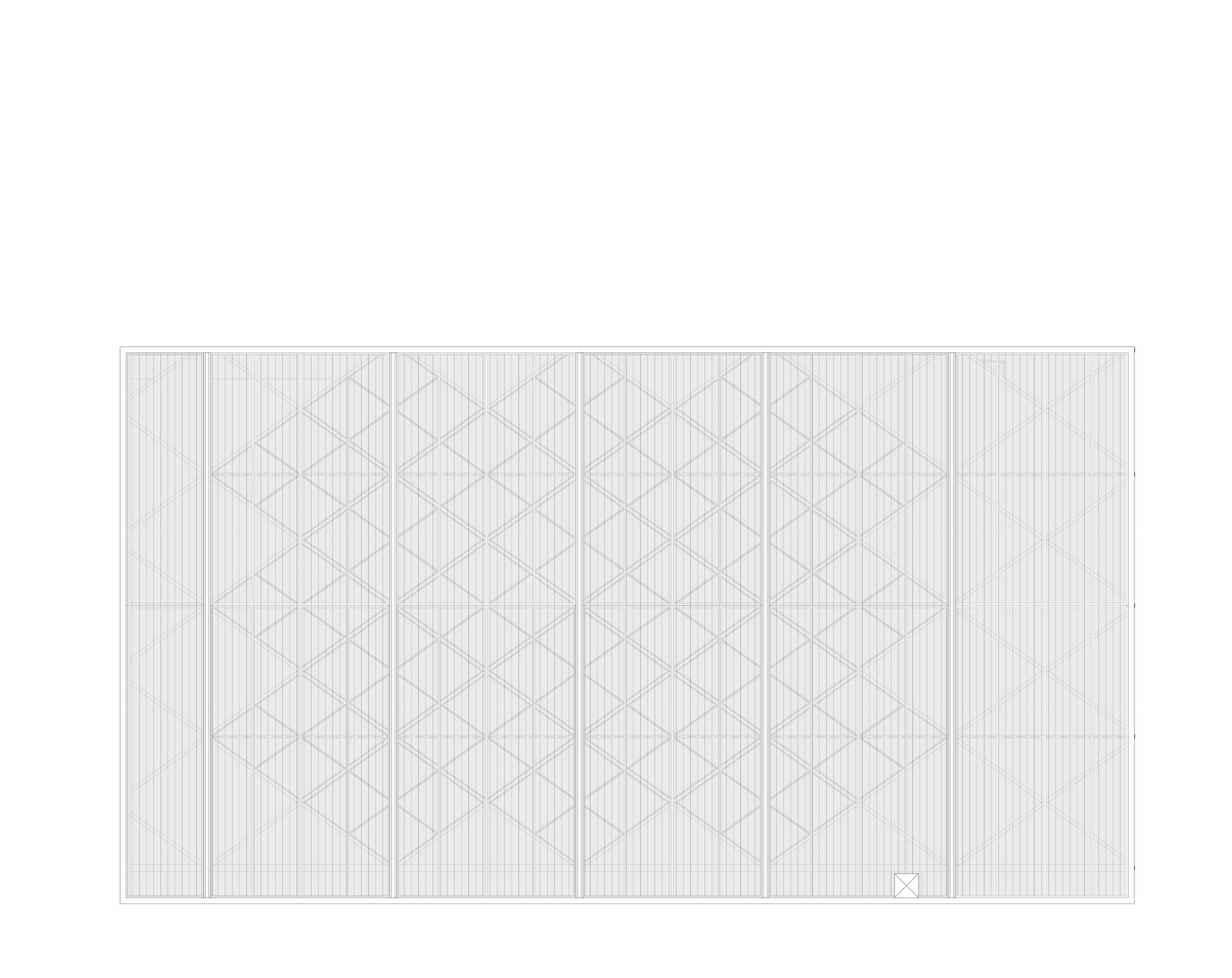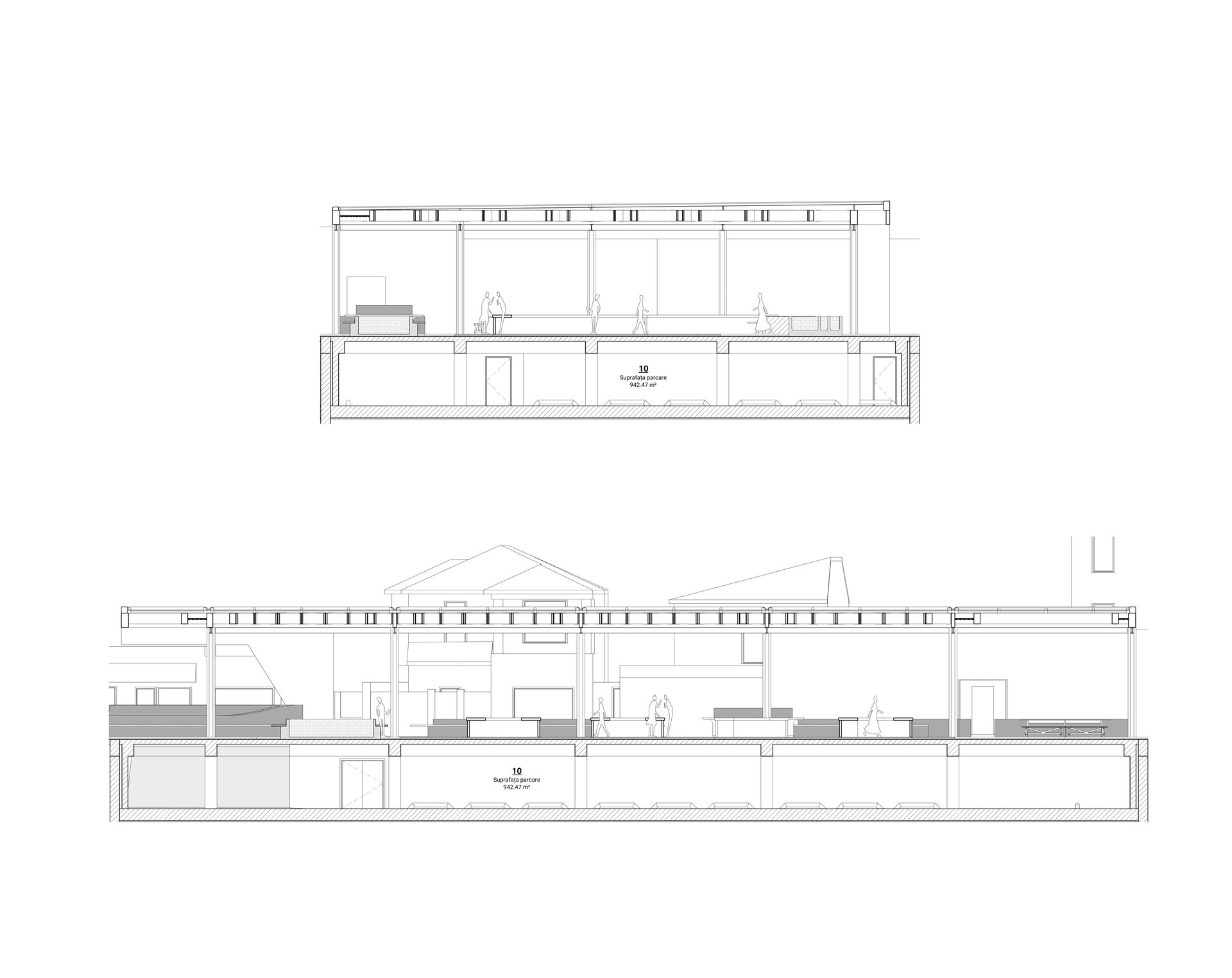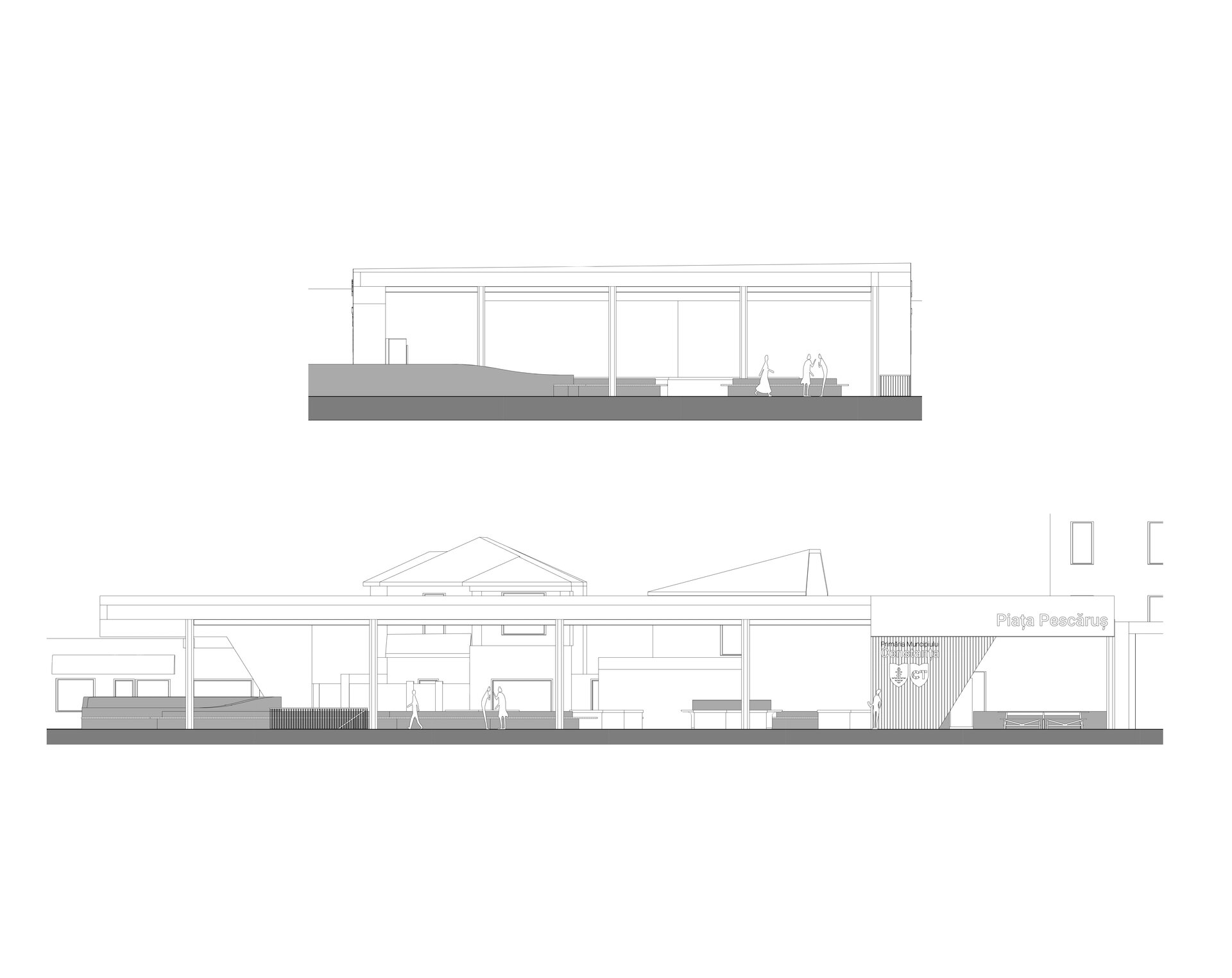
Pescăruș Markethall
Authors’ Comment
Piața Pescăruș in Constanta is a conclusive example of inclusive architecture, where the design and layout of the space are not only aesthetically pleasing, but also prioritize accessibility and social cohesion. This innovative market serves as a vibrant and welcoming social space for the community, promoting interaction, commerce and the celebration of diverse cultures.
The hallmark of Pescăruș Square's inclusive architecture is its unwavering commitment to providing access to all, regardless of age, physical ability or background. Authentic design that seamlessly integrates universal design principles, ensuring that everyone can enjoy space without limitations.
As a social space, Piața Pescăruș embodies the essence of community integration. The open and airy design creates a sense of space and freedom, welcoming people from various walks of life to gather and engage in a multitude of activities. Market stalls are strategically placed to encourage exploration, fostering encounters between people from diverse backgrounds and sparking conversations that transcend cultural and language barriers.
Pescăruș Square celebrates the rich tapestry of Constanta's cultural diversity. The inclusiveness here extends to the vendors, who represent a wide range of ethnic backgrounds and culinary traditions. This diversity contributes to a rich and vibrant tapestry of flavors, aromas and languages, enhancing the visitor experience and promoting a sense of inclusiveness that permeates the atmosphere.
The market can also host cultural events and activities such as musical performances, art exhibitions and cooking demonstrations. These events serve as catalysts for community engagement and mutual appreciation, allowing people to connect with each other and share the wealth of traditions and talents Constanta has to offer.
Inclusive architecture is not only about physical accessibility, but also about fostering a sense of belonging. Piața Pescăruș in Constanța excels in this regard by offering seating areas for socializing, community bulletin boards for sharing local information, and a friendly, helpful staff ready to assist visitors in any way possible, especially through its accessibility. The atmosphere is welcoming and the market hall acts as a bridge between different generations and cultural groups, promoting understanding and cohesion.
In conclusion, Piața Pescăruș in Constanța is a remarkable testimony to the power of inclusive architecture to create a social space that truly serves the community, a beneficial example that could be implemented in Bucharest as well, in areas served by similar urban fabrics. Its design embraces diversity, promotes sustainability (timber structure), ensures accessibility and facilitates interactions, making it a center for social engagement, cultural exchange and community spirit. It is not just a market hall; it is a place where people gather, and everyone is welcomed with open arms.
Public Architecture
- Together... Educational centre in Busua
- Outdoor gathering space
- The Rehabilitation of the Chisinau National Philharmonic
- Help Campus
- Lucian Blaga Highschool, Cluj-Napoca
- Connections with Dambovita. Cultural Center and Museum
- Data Center
- Museum of Emotions
- Urban Regeneration of the Cibin Market Area, Sibiu
- In-between echoes of extinction
- Events center
- Urban regeneration of Gara de Nord Square through rehabilitation and functional conversion of Dunărea Hotel
- Social center for the elderly
- Chapel
- Cibin Market
- Rehabilitation, Restoration, Consolidation and Expansion Secondary School in Huși, Vaslui County
- Modernization, rehabilitation and expansion of the Tineretului stadium, Brașov municipality
- Landscape design by the lake - CUG
- Alternative Togetherness
- Offices and Commercial Spaces on Puțul lui Zamfir Street
- School Campus
- Pescăruș Markethall
